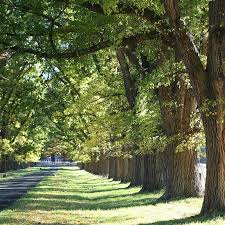The search for truth and justice is sometimes long, arduous and costly. Politicians and journalists speaking and writing in good faith to further that search deserve our thanks, not our condemnation.

One of the reasons Hawke was a successful Prime Minister was he set a high bar of intelligence for those who aspired to serve in his Cabinet. Hawke had an uncanny appreciation of the Australian profile but made sure that his level of intelligence was not on public display to the Australian community. The results were there was to project the Australian larrikin, and except in those crucial years when he was Prime Minister, he laid off the grog. He was reputed to be a good chair of meetings, which is often the case with intelligent people because they never let the meeting get away from them. They are confident in their own ability to elicit the best from their Cabinet. It is not as though they are in the majority the whole time, but they are able reconcile dissenting views.
I hardly knew Hawke, but I knew a number of his Ministers, and it was that time when my cohort – people in their late thirties through to mid-fifties were running the country. His achievements have been lasting – Medicare, national superannuation, floating the dollar and addressing tariff walls, and industrial peace – being obvious. He shared the success of his government around and was, for the most part, not seen climbing over Ministers to claim success nor resiling from failure. There is always a dark side to most people. Hawke was no paragon of virtue, but he was a substantial person.
However, it is an axiom in the race to the bottom that no national leaders ever let anybody more intelligent than themselves into their Cabinet. It has never been truer than today when you cast your eye over the current Australian leadership.
Smart people fail, pulled down by people less mentally equipped than themselves. The “Tall Poppy syndrome” is not an Australian trait by accident. The lesson of Malcolm Turnbull who, like Hawke, was a very intelligent “blow-in”, is a case in point. However, Turnbull was never comfortable about mixing in the front bar. In a trip to rural Queensland, the boys in the bar christened him the “tent peg” – Akubra hat on his scone and the body a tailored peg of new clobber – shirt and moleskins – not a speck of dust to be seen – unless it was the dust of his Commonwealth car or the plane moving away.
I remember another very smart NSW lawyer in the Turnbull mould, Ted St John. He didn’t last long, but he did make the point that if Australia didn’t pay politicians enough, then the standards would fall. He unfortunately was so wrong.
Election to Parliament is now equivalent of saying “Open Sesame” for the Mediocrity. The essential element of the new order is to be able to suck, while strategically learning to place the foot in the face of the competitor. Hardly an edifying exercise, but one about which the community I suspect has not wanted to know.
The parliamentary salary is incidental when compared to the accompanying perks and post-parliamentary life. So being a member of parliament is a desired objective, given the curricula vitae of most brings little worthwhile experience but plenty of ambition and a loose grasp on morality in all its forms. Our politics are directed inwards, but I have written extensively about political dysfunctionality.
Incidentally the quote at the start of this piece comes from the eulogy on the death of Ted St John given by Michael Kirby in 1994. It says most of what I have taken a longer space to write.
Sinophobia or an Amplified Dislike?
The Virus has pushed much of the politics to deal with the financial downside, with the tension between those who wanted to prioritise health against those with the Trump agenda of prioritising business. As America is finding out, a pandemic saps the strength of the nation.
At the same time, a China increasingly immune from the pandemic has turned its attention to Australia. It seems as though that in concentrating on Australia, they are invoking the traditional “lingchi” method – death by a thousand cuts – cutting off the pectorals then the arms while the victim is still alive – and ending with decapitation.
The aggressive Morrison believes that playing to the “high vis” front bar, aping Trump, in some way neutralises the Chinese cold fury. Other countries “will hold Morrison’s coat” and salve his wounds every time his Chinese adversary knocks him down, whispering in his ear “just another round. You have softened him up, champ.” In other words, if Australia wants to lead direct confrontation, it takes the pressure off others.
The problem is that China holds most of the cards. There is an essential need for iron ore while Brazil remains a “basket case”; so we hold one card for now. However, they will continue to squeeze us on our exports which can be sourced elsewhere. The Chinese picked out barley exports as an early target. From sources years ago, I was told the best barley comes from the Yorke peninsula. This is in the electorate of Grey, which has shown substantial volatility in past elections. Whether the Chinese would drill down to an assessment of the impact of a boycott or imposition of outrageous tariffs on electorate voting patterns in Australia; it is a possibility.
If the Chinese are meddling in our electoral process, either directly or indirectly, it is noteworthy that Morrison does seem to have pushed forward the member of Chisholm, Gladys Liu, given her links to China. However, she may be paddling very hard, but beneath the surface.
In any event, the Chinese approach is calculated, although leaving coal-laden ships off the coast may be a mixed blessing by shrivelling our reliance on coal exports. This is one positive consequence. As it is with the timber ban – nothing like rendering native forests into wood chip. So a ban may improve our forest management and not leave the detritus of the chain saw as a tinder box for future bushfires.
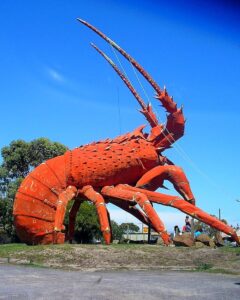
However, the consequences of rock lobster and wine targeting, as such action targets particular electorates in my thesis of the Chinese taking a very specific approach to lingchi dismemberment. As a consequence, rock lobsters are suddenly more readily available and at a cheaper price for the Australian consumer. Robe is one area where there are lobsters – the nearby town of Kingston SE has The Big Lobster. The response is not to send the boats out and when they do bring in a catch now, it may go into a sea tank on shore. When we purchased ours at Robe, only three had been cooked and we bought the one-and-a half kilo lobster. In addition to availability, the price was reasonable, thanks Xi-Ping, you bloody beauty. Nevertheless, I am not quite sure about the value of that card.
Wine is more complicated but if the influential want to continue buying our wine – it may come up with a Tonga label and be imported as such. After all, 30 per cent of the Tongan economy is already Chinese.
But the newly-designed “lingchi” will continue, especially if we allow ourselves to be tied to the Chinese post, to be continually sliced.
The next anti-Australian strategy is to troll people who have not been inured to it. The Chinese have a store of grievances. After all, Australians have been beastly to the Chinese since goldfield days where they were forced to land at Robe to avoid the punitive poll tax the colony of Victoria imposed on them. Tens of thousands of Chinese from all walks of life, searching for the “New Mountain of Gold” under a pall of discrimination, trudged from the port of Robe in South Australia across Victoria to the diggings. I am sure the Chinese government has a reservoir of troll scrolls to annoy and stimulate the Jones Boyo commentators inciting them to fall into the trap and inflame the situation into their own megaphonic integral loop of affront.
The Asian student has been a vital contributor to the education economy. The lure of the Australian universities was strong when their prestige was such that the Asian elite used to send their children to be educated here. Remember when the Australian upper class sent their children to be educated in the Old Country. Australia had a similar snob cachet. Now, not so much. Quality of education evens out; and as with everything, education improves locally as the middle class grows as it has done in China.
Australia is not a maritime nation, despite having one of the longest coastlines. Rather it is a recreational yachting nation with a xenophobic concern for border scrutiny. Sometimes an early closure of our borders is justified, as with the Virus. On the other hand border closures, if indiscriminate, lead to an inwardly concentrated nation with just too much a sense of hedonism.
So how are we dealing with the fact that the wedge of ocean south of us is our backyard? Is there any discussion about the future of Macquarie Island at a time when the world is warming? It may be inhospitable now, but in the future, who knows – except its sovereignty is clear.
On the other hand, the future of Antarctica is murky. All the optimism embodied in the 1957 Treaty is rapidly fading. China already has three bases in an area of the Antarctica claimed by Australia, where our nation has been a shrunken violet but has laid claim to 40 per cent of the land mass. It is hard to defend such a claim when our inattention to its strategic value seems to lead to much talk, and little action.
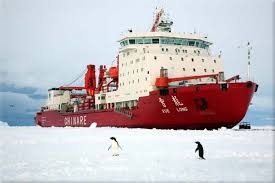
China has the three latest icebreakers. Australia has one. But never fear. Australia has ordered six submarines to be ready by 2050 to satisfy the current electoral imperatives of the South Australian Liberal Party and to help Christopher Pyne in his retirement. How they will defend our Southern bailiwick is not clear – if, by 2050, there is a bailiwick.
Thus, there have been many words which reveal a depressing situation. At least it seems that New Zealand is patrolling the Southern Ocean. It is difficult to find out what Australia is doing, but some of the illegal fishing boats have suspiciously Chinese names under flags of convenience. Most of Australia’s maritime resources are concentrated in the north to repel the asylum seekers. I am not sure what we gain by patrolling the Red sea, but it is probably important to America.
Our policy reminds me of the British who, in Singapore, faced their guns toward the sea, because the British thought that the threat came from the sea. Pity the Japanese thought otherwise.
Australia has a great deal to lose if it loses its passage to Antarctica, given the large amount of territorial water shared with New Zealand. And I have not addressed the impact of Heard Island. Every rock is important as the people of Tristan da Cunha, a South Atlantic British protectorate which has set up a fishing war zone around the territory three times the size of Great Britain, has recognised. It would be better if we joined the UK in keeping out the “Chinese pirate navy”, as it is called by the islanders – more use than playing war games in the Northern Pacific.
And if you wonder about relevance, just look at where your rock lobster has been sourced while we have been sending all of ours to China – Tristan da Cunha.
Fisheries rate lowly in policy at a national level – an Assistant Minister who reports to the Minister of Agriculture, Littleproud, who comes from Central Queensland. At least the Assistant Minister comes from Tasmania, and Macquarie Island falls within Tasmanian jurisdiction and the Antarctic Division is located in Hobart. However, Minister, that is not what I am writing about.
A Funny Thing Happened to me on the Way to the Bathroom
Anonymouse – regular correspondent
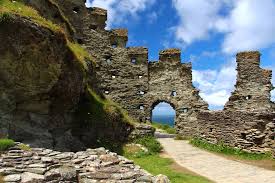
It comes on so infrequently. But when it comes, it always comes in the same way. The first indication is the loss of vision laterally – always in the left eye. Then this loss – called a scotoma – spreads across the whole left visual field as it is taken over by a downwards arc of small shimmering white triangles, called a fortification spectrum because its pattern resembles the walls of a medieval fort, with zigzag lines on the leading edge.
Sometimes a dull pain commences in my right fronto-temporal region.
As my attacks are so infrequent I don’t have any anti-migraine drugs, but I do always have aspirin on hand; taking one gram of aspirin solves the visual problem almost immediately. The headache persists as it sometimes does, but I am wearing dark classes. I am away from the computer and this description is being transcribed as I work through the murk of this attack.
I did not know what I was doing or what was happening when I experienced my first attack. It was so sudden and the immediate reaction was that something catastrophic was going on with my eyes. Wise counsel provided a simple solution – it was a pre-migraine aura and aspirin in a large dose and avoiding light was the answer (add to that – avoiding computer screens).
This latest attack has come only days after I had visited the optometrist and received a clean bill of health, at least to the limits of his expertise.
This might be of interest to others who have experienced something similar – or need some reassurance.
Black Friday
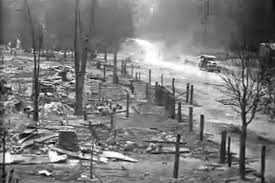
Loss of Life and Property Exceeds 1851 Destruction
“18 people perished in Victoria to-day. The death toll has now reached 20 since the fires commenced. At least 10 others are missing. To-day was the blackest day in the tragic history of Victorian bushfire terrors, eclipsing the terrible “Black Thursday” of 1851, and the disastrous fires of 1926, 1928 and 1932.
Damage almost beyond assessment has been done. Thousands of square miles of valuable timber country have been burnt out. Farm lands have been ravaged and dozens of homes destroyed. A large section of the State is now a blackened ruin and smoke from the advancing flames shrouds the entire State.
Seven people met terrible deaths when two cars in which they were making a dash for safety through the blazing bush at Narbethong were overwhelmed by flames. Eleven men perished in a holocaust in the Rubicon forest, near Alexandria.
The Narbethong tragedy was discovered by firefighters who were searching the ruined area for people who had been reported missing. They found the burnt out cars close together on a track leading from the Buxton-Maryville road to Peiglan’s mill. Nearby were five bodies, those of three men, a woman and a child in the ruined cars were the charred bodies of two more men. All the victims had been terribly burned and the heat had been so terrific that some of the metal of the cars, and the glass windscreens and windows, had been melted.
Two families were making a dash to Narbethong. On the way they picked up three Greek workers, who had been sheltering in a river. Not long afterwards, a wall of flame met the two cars as the fire, which had raced through the Acheron district with incredible speed, overtook them. Five of the victims, including the child, made a run for it, but dropped in their tracks as the scorching blast struck them. A similar fate overtook the two men who had remained in the cars. It was an irony of fate that, had the Greeks remained in the river, they would still be alive, for seven other men, employees of the same mill, were found safe after the fire had passed.
Eleven men lost their lives in the Rubicon forest, near Alexandria. The men apparently lost their lives after an ineffectual effort to save the Rubicon and Pearce mills from destruction. As the fire advanced, they were obliged to run for their lives. Five of them died on the track through the forest. Their bodies burnt almost beyond recognition, were found this morning. The other bodies were found not far from the mills. Two bodies were huddled in a small clearing. Smouldering coats covered their faces, but the heat had killed them.
In another part of this area 25 timber workers saved their lives by standing in a dam for many hours, dipping their heads beneath the surface periodically to save their faces from the heat. The fire which claimed the lives of the Narbethong victims almost accounted for two other men from Feiglan’s mill who, shockingly burned about the lower parts of their bodies, reached Buxton to-day after a nightmare journey through the fire-swept forest. Covered with sawdust, they stated that, after trying without success to save the mills, they ran to the only cleared patch, the cricket pitch, where they lay down and covered themselves with sawdust from the mills. Scorched, and suffering agony to the limit of endurance, they remained there until the fire had passed.
The sawdust had been charred. and their bodies from their feet to their waists were badly burned. The destruction of telegraph lines has made a careful check-up of the missing people impossible at present and it is possible that some of those, whose whereabouts are unknown are safe.
The Powelltown valley was a sea of flame and hundreds of acres of valuable timber country have been destroyed. Anxiety expressed yesterday about the safety of men, women and children at the Ada River mill was allayed to-day when they were brought safely to the township. Noojee, the scene of the disastrous fires in 1926, is again menaced. The flames are creeping slowly towards the town through the heavily timbered country. Huge trees in the Loch valley have crashed to the ground and there appears to be no hope of combating the flames at this juncture.
One party of men who had been making a road to Rubicon power station ran down the track, but five men waited while one of them went to the rescue of his dog. These men were not seen again. The others reached a clearing which they had prepared earlier in case of an emergency. Rubicon residents succeeded in getting through to Alexandra, although, for many miles, they had to drive through terrible fires.
This report has been retrieved from Trove. It is often disconnected but it reflects the horror and fear that the correspondent was feeling.
Pointedly it was further reported that the then Prime Minister Lyons was fighting fires in Tasmania where he had his home. Joe Lyons himself even at that time had health problems. Three months later he was dead of a heart attack. No Hawaii holiday for him.
I was born in Victoria. Then we grew up with the memory of Black Friday. Our parents and grandparents had suffered that day.
I thus object to the term “Black Friday” being used as an adaptation of an American marketing ploy to start the annual fleecing of the population in the lead up to what were once religious festivals.
Even more distasteful is that the “black” signifies turning the ledger entries from red to black, in other words for the marketeers “black” is synonymous with profit – hence the name “Black Friday”.
We, as Australians have come through yet another horrendous bushfire season in 2019, where every day of the week could have been labelled “black” – and here the term has been used in a trivial manner spitting in the face of those who have tried to tame nature. To end the week of the “Black Friday sales”, there were the images of politicians lachrymose over the memorial of two firefighters who perished in the bushfires earlier this year.
These men were members of the Buxton fire brigade in NSW. The Buxton in Victoria was in the midst of the Black Sunday fire in 1939. A tragic association – it should be noted that the 1939 news account used the word “holocaust” before it was given that wider connotation.
Nevertheless, the use of the word was that of a correspondent trying to find a way to express the horror of that day.
Black Friday is 13 January in the Australian lexicon. Those of you who try to trivialise and violate the meaning of Black Friday will probably be greeted with a shrug of the collective Australian shoulders signifying how far the decline in public morality has fallen.

Mine is a different ledger from that of the on-line retailers. Fire is red; it turns the country black as the aftermath. However, if that is how the country wishes to debase “Black Friday” on the Amazon Altar, so be it.
Mouse Whisper
Once upon a time, there was a gracious lady. She loved the elms in her city as much as she loved the gum trees of her rural childhood. The city sheriff wanted to cut the elms down and replace them with desert ash. Elms were not tidy; they shed their leaves and the leaves needed to be cleaned up on the roads. Tidiness was the word; as the sheriff turned to ash.
She protested loudly. She wrote; she marched; she created a controversy. Eventually she defeated the sheriff, and the elms still grow and flourish.
Unlike the World at large.
Her elms remain as major survivors of the Dutch Elm Disease which killed elms all over the world, but not here.
The elms are now a valuable asset. The city is famous for them. The world comes to see these elms.
The lady lies at rest; her resting place covered with rosemary. On her rough granite gravestone is inscribed a drawing of the elm leaf – and an inscription to she who loved the elm and the eucalypt.
There are now perhaps 70,000 elms in Australia, most of which are in Victoria.
